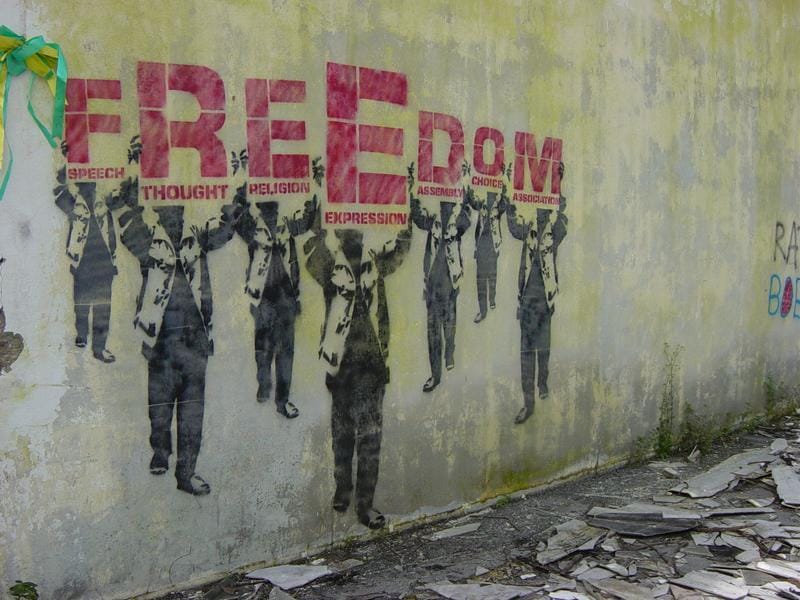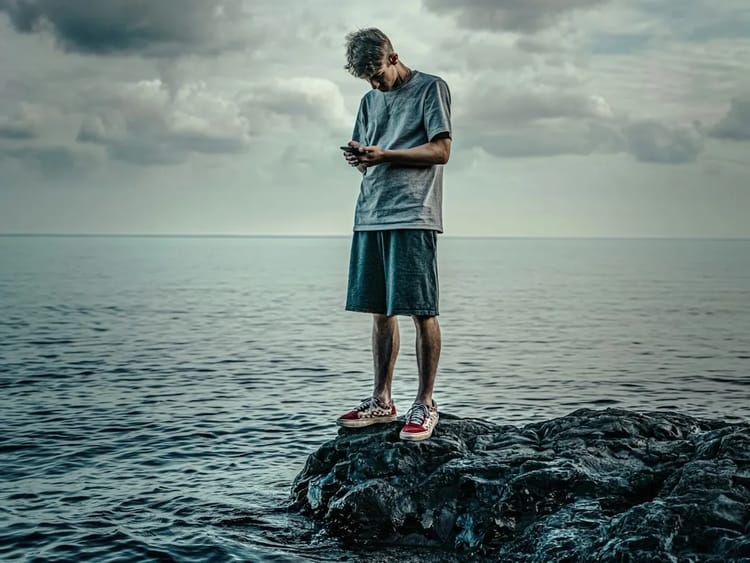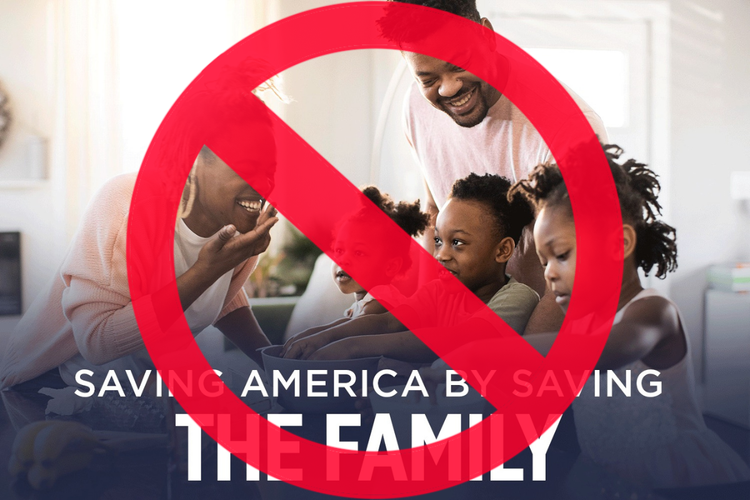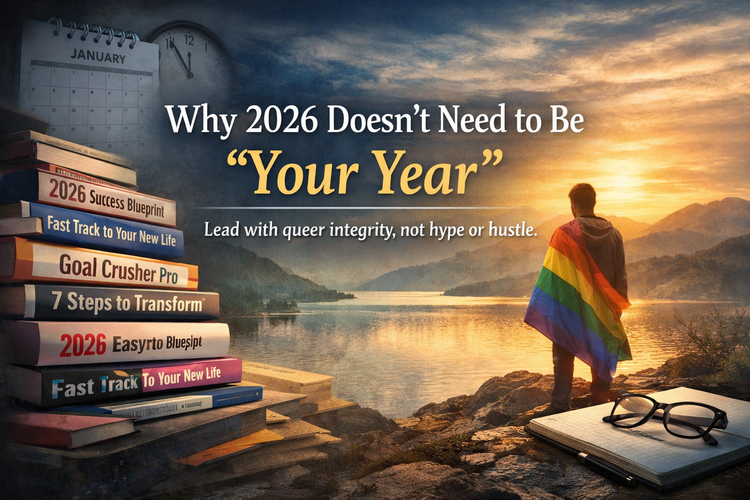The Freedom to Be Who You Are—And the Responsibility That Comes With It

“We’re all the same, yet different.”
Aphorisms like this one are too simplistic—they’re not nuanced enough to represent the complexity of humanity, social belonging, and real understanding.
However, they can be useful when they prompt thinking, as in, ‘What does that really mean?’. In most cases, they depend on a mutually arising polarity like, you can’t understand what up means unless you understand what down means.
The truth in the statement, “We’re all the same yet different,” is that we are all alike in that we’re human.
Now, there are many people who would disagree with that.
Unfortunately, we’re seeing more of that in the world, especially those who choose not to see the humanity in others. They don’t see a human being. Instead, they see whether someone is legal or illegal, whether someone belongs or has snuck into “their” country.
But when you read and understand history (in this case, colonialism) you know that the lands of countries like Canada and the United States were taken. And of course, many governments have in the past, and continue to this day, to suppress that knowledge. They don’t want people to know that the so-called “owners” of the country—politicians, big corporations, oligarchs—took over lands hundreds of years ago.
Of course, individuals today are not personally responsible for the gross injustices of the past. But to ignore the truth of history… well, you know where that leads—division, erasure, and a lack of reconciliation.
Now, in my work coaching clients, my role is to help them find more freedom.
That’s it.
Freedom.
But like the phrase “We’re all the same, yet different” that’s a simple statement that doesn’t do justice to the complexity and nuance of coaching.
In this sense, finding more freedom means you can be fully, truthfully, and authentically yourself. You can pursue your dreams. You can find the ways that you, most uniquely, can make a difference in the world, or create your thing. Furthermore, you can lead yourself, master yourself, and be alive and visible in a way that inspires others.
All of who you are from your foibles, mistakes, concerns, shame, guilt, strengths, skills, passions, and vision goes into the metaphorical pot. Getting clarity about those individual ingredients in that pot is what helps you determine what freedom means for you and all the parts that create that possibility.
There’s a helpful way of thinking about this: positive freedom versus negative freedom.
In the article Does Anyone Understand What “Freedom” Means?, philosopher Douglas Giles explains the difference simply.
Negative freedom is what we are free from—coercion, intimidation, restriction. Positive freedom is what we are free to do—to express ourselves, pursue purpose, and act upon our values. Most people, Giles says, either confuse these two forms of freedom or focus only on one, neglecting the other—and that misunderstanding affects everything from politics to personal behaviour.
Positive freedom means you’re working toward something that benefits yourself and others. Negative freedom means you’re free from limitations or restraints, those things that encroach on achieving your own positive freedom.
One of the core freedoms that, I believe, needs to be upheld is the freedom of the individual.
However, that freedom doesn’t extend to the point where it comes at the expense of another person’s freedom. So when governments or institutions try to suppress individual thought, restrict knowledge of history, police freedom of expression, gender identity, or how people identify—that suppression creates more resistance.
That’s negative freedom.
There are always limits to freedom, and those limits are called consequences.
For society to function, there have to be some boundaries. You can’t have this if it denies someone else that. It won’t always feel fair, but the guiding questions are: Is it just? And, Does it serve a greater positive freedom?
You might be wondering where I’m going with all this. Here’s what I’m seeing.
The challenge I’m witnessing with many people right now is that they’re unintentionally creating their own negative freedom—by not speaking up, by not leading—and for LGBTQ+ leaders by not fully embracing their queerness.
Yes, I understand we need to be safe. But we are entering a time when it’s more important than ever to be visible—not to make ourselves targets, but to be visible in a way that inspires others. To say: This is my inalienable right; to be who I am, to express who I am. Because that expression doesn’t truly harm anyone.
If someone holds on to an ideology that says my existence—my being queer, gay, a “faggot,” whatever word you want to use—harms them, that’s not truth. That’s fear. That’s a belief system rooted in control.
And here’s why this matters:
When we’re truly free, we don’t have to think about who we are.
We just show up. We live and move through the world with ease, like breathing. I don’t have to consciously monitor every inhale and exhale.
In the same way, I don’t walk through the world constantly thinking about being queer. Occasionally, that part of me is totally irrelevant. I’m walking my dog, making breakfast, or writing in my journal. That’s not an identity, that’s a life.
But the more that systems try to restrict positive freedom, and create frameworks that only allow certain people to live fully, the more we will experience resistance.
Whether it’s quiet and subversive or loud and confrontational, the human spirit doesn’t stay suppressed for long. When we can’t be who we are, we can’t be creative and our ability to make a difference is limited or restricted. If that suppression continues, the human spirit—the sense of vitality, possibility, and connection—begins to die.
Sadly, those who don’t have the strength to resist—and I say this without judgment—may actually lose their lives. That is one of the most heartbreaking consequences of identity suppression.
Those who do have the strength, they will resist. They will revolt. History shows us this over and over again. These kinds of rigid, ideological systems that try to define who counts as human, they either collapse from within, or they get overthrown.
Sometimes it’s dramatic. Other times it’s slow, subversive, and quiet. But the foundations eventually crack.
Here’s what I want to leave you with; a message that matters to me:
- Your leadership depends on your freedom.
- Your creativity depends on your freedom.
- Your peace of mind depends on your freedom.
- And your freedom depends on the freedom of others.
Please consider what kind of freedom you are claiming for yourself, whether that’s a positive freedom that contributes to shared human dignity well-being, or a negative one that leads to harm and injustice.
Your wisdom, leadership, and guidance are EXACTLY what someone, somewhere, needs right now—let’s find it together so that you can enjoy more positive freedom.
The Integrity Call is a 75-90 minute leadership session to help you refine your leadership by getting the clarity to move forward with a direction that aligns with your values, your purpose, and your queerness. Your investment is $225 (Canadian).





Member discussion